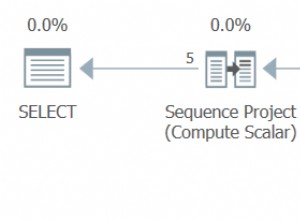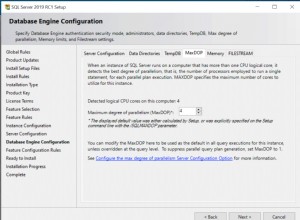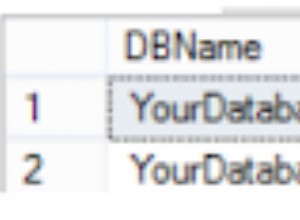Niestety mysql nie posiada funkcji analitycznych. Musisz więc bawić się zmiennymi. Przypuśćmy, że masz pole autoinkrementacji:
mysql> create table mytab (
-> id int not null auto_increment primary key,
-> first_column int,
-> second_column int
-> ) engine = myisam;
Query OK, 0 rows affected (0.05 sec)
mysql> insert into mytab (first_column,second_column)
-> values
-> (1,1),(1,4),(2,10),(3,4),(1,4),(2,5),(1,6);
Query OK, 7 rows affected (0.00 sec)
Records: 7 Duplicates: 0 Warnings: 0
mysql> select * from mytab order by id;
+----+--------------+---------------+
| id | first_column | second_column |
+----+--------------+---------------+
| 1 | 1 | 1 |
| 2 | 1 | 4 |
| 3 | 2 | 10 |
| 4 | 3 | 4 |
| 5 | 1 | 4 |
| 6 | 2 | 5 |
| 7 | 1 | 6 |
+----+--------------+---------------+
7 rows in set (0.00 sec)
mysql> select
-> id,
-> first_column,
-> second_column,
-> row_num
-> from (
-> select *,
-> @num := if(@first_column = first_column, @num:= @num + 1, 1) as row_num,
-> @first_column:=first_column as c
-> from mytab order by first_column,id) as t,(select @first_column:='',@num:
=0) as r;
+----+--------------+---------------+---------+
| id | first_column | second_column | row_num |
+----+--------------+---------------+---------+
| 1 | 1 | 1 | 1 |
| 2 | 1 | 4 | 2 |
| 5 | 1 | 4 | 3 |
| 7 | 1 | 6 | 4 |
| 3 | 2 | 10 | 1 |
| 6 | 2 | 5 | 2 |
| 4 | 3 | 4 | 1 |
+----+--------------+---------------+---------+
7 rows in set (0.00 sec)
mysql> select
-> id,
-> first_column,
-> second_column,
-> row_num
-> from (
-> select *,
-> @num := if(@first_column = first_column, @num:= @num + 1, 1) as row_num,
-> @first_column:=first_column as c
-> from mytab order by first_column,id) as t,(select @first_column:='',@num:
=0) as r
-> having row_num<=2;
+----+--------------+---------------+---------+
| id | first_column | second_column | row_num |
+----+--------------+---------------+---------+
| 1 | 1 | 1 | 1 |
| 2 | 1 | 4 | 2 |
| 3 | 2 | 10 | 1 |
| 6 | 2 | 5 | 2 |
| 4 | 3 | 4 | 1 |
+----+--------------+---------------+---------+
5 rows in set (0.02 sec)




